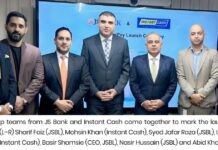Scientists have found a way to fend off occasional nightmares. Sound therapy can also be used to treat nightmare disorder- a condition characterized by frequent nightmares that cause distress or impair the patient’s ability to function during everyday activities such as work or social situations.
Imagery rehearsal therapy (IRT) is one commonly used treatment method for nightmare disorder.
Sound Therapy For Nightmares
The method could boost the effectiveness of an existing treatment for people with chronic nightmares, say, researchers. According to experts around 4% of the general adult population might suffer from frequent nightmares at any given time, and nightmares are even more common for people with certain mental health conditions, such as post-traumatic stress disorder.
The technique refers to playing a sound that is linked to an uplifting daytime experience. They emitted this sound through a wireless headband while participants were asleep, reducing nightmare frequency.

Read More: Extreme Weather Conditions & Skin Diseases: Here’s What You Need To Know
“There is a relationship between the types of emotions experienced in dreams and our emotional well-being,” says senior author Lampros Perogamvros, a psychiatrist at the Sleep Laboratory of the Geneva University Hospitals and the University of Geneva, in a media release.
“Based on this observation, we had the idea that we could help people by manipulating emotions in their dreams. In this study, we show that we can reduce the number of emotionally very strong and very negative dreams in patients suffering from nightmares.”
Sound Therapy Observations
The observations noted by the researchers following the sound therapy course included fewer nightmares as well as more joy during their dreams, says study authors.
Three months later, people in the control group reported an average of 1.5 nightmares a week, while those in the sound group reported less than 0.5 nightmares a week. People given the sound cue also reported having more dreams where they simply felt joy.
“We were positively surprised by how well the participants respected and tolerated the study procedures, for example performing imagery rehearsal therapy every day and wearing the sleep headband during the night,” says Perogamvros.
“We observed a fast decrease in nightmares, together with dreams becoming emotionally more positive. For us, researchers and clinicians, these findings are very promising both for the study of emotional processing during sleep and for the development of new therapies.”
According to the study authors, the study has a relatively small sample size, so the results shouldn’t be seen as definitive proof that sound cues can help people chase away bad dreams. But if these findings are validated by additional, larger studies, then the applications of targeted memory reactivation during sleep might extend well beyond nightmare therapy.
Read More: How To Fall Asleep When You’re Stressed
Stay tuned to Brandsynario for the latest news and updates.






































